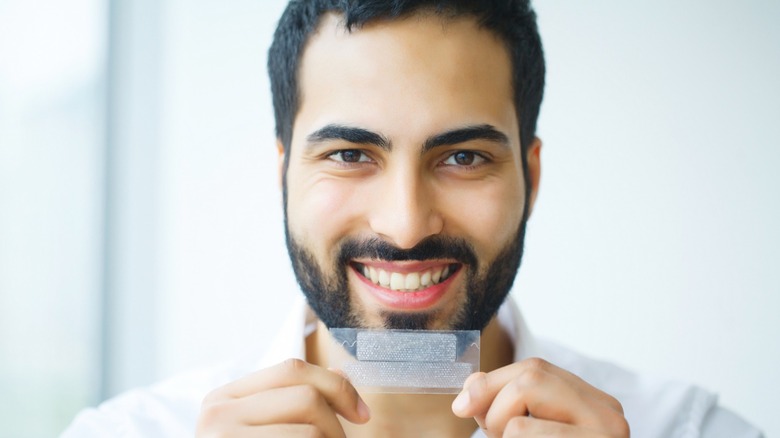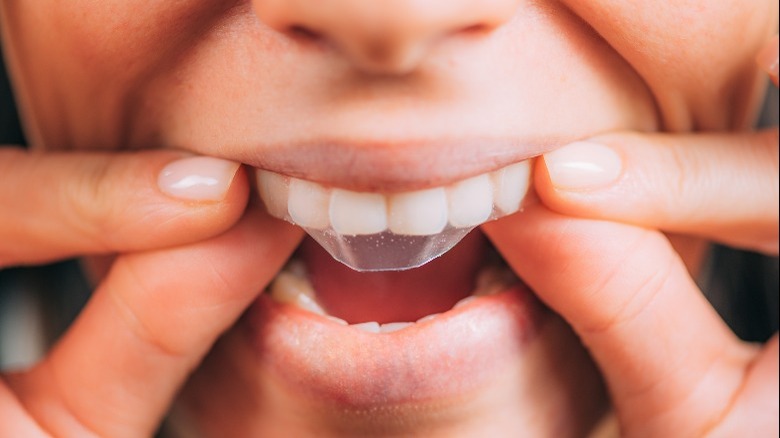The Truth About What's Really In Teeth Whitening Strips
We're seeing a lot more toothy smiles since social media platforms like Instagram and TikTok have become woven into our world's social fabric. But if the pictures you've been posting of yourself on social lately are revealing a smile that's not as white and bright as you'd like, are teeth whitening strips a quick and safe way to add more sparkle to your selfie?
The teeth whitening strip is a relatively new invention. According to Allure, up until the late 1980s, the only way to get a whiter smile was to spend roughly $800 at the dentist's office. Adjusted for inflation, that's roughly a whopping $1,700 in today's dollars (via Dollar Times). But Proctor & Gamble, the parent company of Crest, saw increased interest in dental whitening and developed the first Crest Whitestrips that hit the stores only in 2001 (via Allure). As a result, the teeth whitening industry exploded and other dental brands followed suit, providing the countless choices of teeth whitening strips we have today. Since then, over-the-counter whitening strips continue to evolve and undergo experimentation to improve whitening in ways that are effective, while preserving your dentin and enamel.
Are teeth whitening strips safe?
According to Healthline, most at-home whitening strips you purchase from the local drug store contain either hydrogen peroxide or carbamide peroxide, which are the primary ingredients that can remove stains from your teeth. In some cases, teeth whitening strips may contain chlorine dioxide. Whether or not chlorine dioxide is safe is still being debated. A study published by the British Dental Journal describes chlorine dioxide as "more harmful" and was shown to strip enamel and lead to tooth sensitivity. Teeth were also shown to be more prone to restaining, developing a rough surface, and permanently losing their luster.
The experts at Medical New Today note that while over-the-counter teeth whitening strips are affordable, easy to use, and can be effective, they do have potential downsides. For example, as much as you want your teeth to be as white as possible, be careful not to overuse the product because this can cause damage to your teeth. Follow the product's instructions to avoid side effects. And if you have gum disease, it is best to consult with your dentist first before applying whitening strips.
Bottom line: Health experts believe that teeth whitening strips are generally safe when applied properly. However, be mindful of the nature of the whitening agents the product contains and the possible side effects these chemicals can have on your teeth. Also, manage your expectations and know that it could take time to see results.


